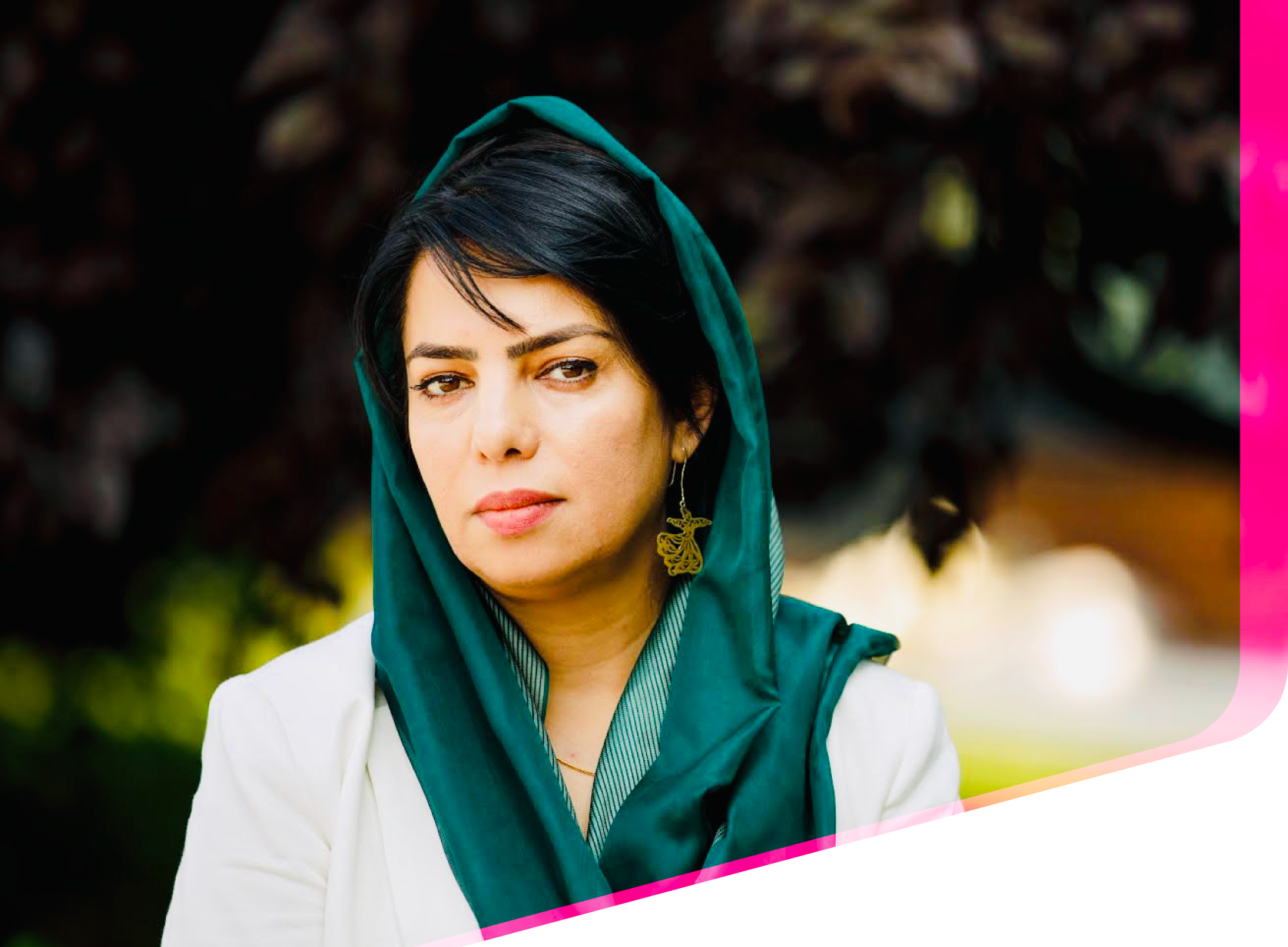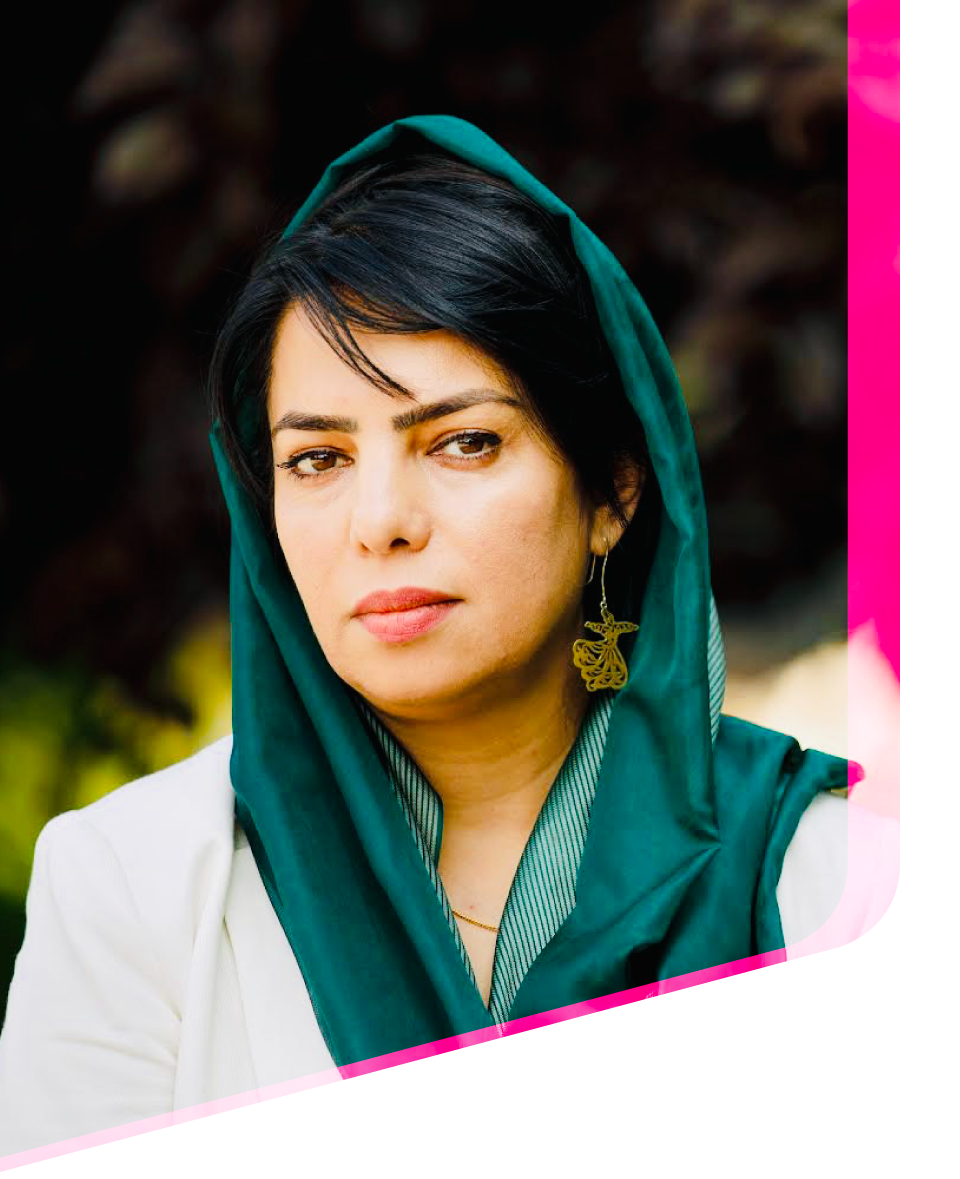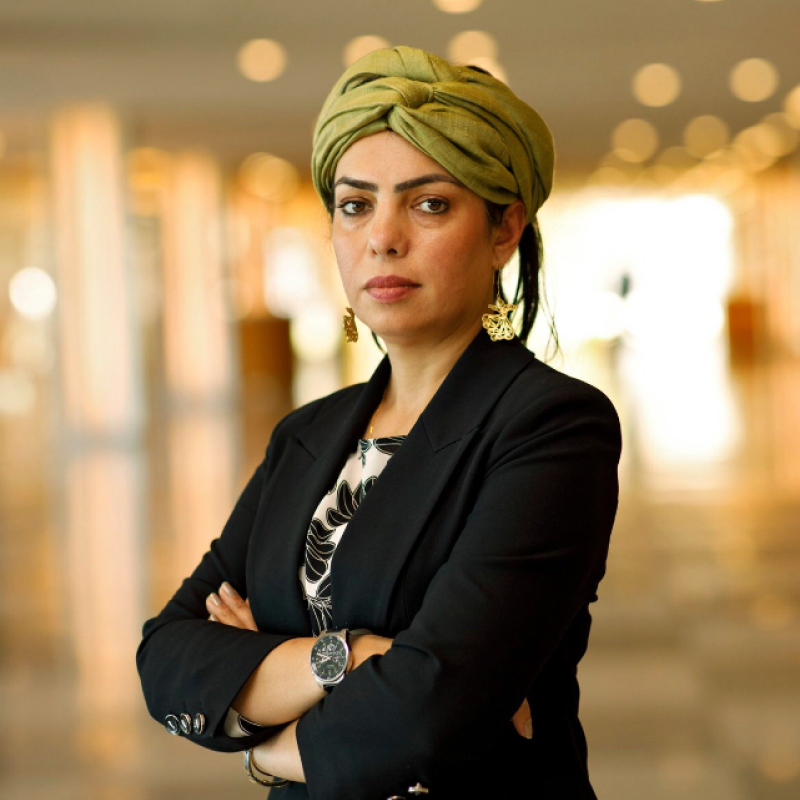
Afghanistan
Afghanistan
Afghanistan
Anisa Shaheed
Anisa Shaheed
Anisa Shaheed
Journalist and Human Rights Activist
Journalist and Human Rights Activist
Journalist and Human Rights Activist

Afghanistan
Anisa Shaheed
Journalist and Human Rights Activist
„I ask the international community to help Afghan journalists.“

VITA
Anisa Shaheed is a journalist who has made remarkable contribution to Afghanistan's media landscape. She studied journalism at the Kabul University and shorty after her graduation, she started working the “Tolo News”, one of the well-known independent news channels in Afghanistan. She has written reports on security, corruption, peace and, human rights issues. After the Taliban captured Kabul, Anisa Shaheed had to flee Afghanistan to the United States, where she started working with “The Independent”, Farsi Section, and later on, with the Amo TV, a media outlet established by a number of prominent Afghan journalists in exile. Her journalistic work has been internationally recognized as "courageous" by Reporters Without Borders, showcasing her commitment to delivering accurate news even in challenging circumstances; her fearless coverage of human rights violations, especially women rights violations, is acknowledged with the prestigious Knight International Journalism Award by the International Center for Journalists. She has been also named as "The Face of Afghanistan's Freedom of Expression" by the Afghanistan's Free Speech Hub, a network afghan journalists that aims to create an inclusive, pluralistic, and professional organization for journalists and media workers.
Afghanistan is one of the most dangerous countries for female journalists in the world. Knowing the hardships, what motivated you to choose this profession and later on even cover cases of human rights abuses?
I knew very well that I was living in a war-torn country, a dangerous place for women in the region, but I wanted to become a journalist, so that I could go even to the remote areas and report on the different issues that the local communities were facing, especially on the challenges to their fundamental rights. When I decided to become a journalist, I accepted all the risks. As a journalist with the focus on human rights, I knew about everything that was happening in my country and had close contact with those who were victims of rights violations by warlords as well as by the Taliban. Nevertheless, I have prepared reports on dozens of human rights abuses. I have talked to various people, women, children and men; this was my passion and responsibility.
You have investigated cases of sexual violence and corruption by former high-ranking government officials, which attracted national and international attention. Have you faced threats or persecution in doing so?
Yes, I have faced a number of threats and harassments. For instance, in December 2016, I prepared a report that Marshal Abdul Rashid Dostum, who was Afghanistan’s first Vice President at that time, kidnapped, Mr. Ahmad Ishchi, a former Vice President of the National Movement Party and imprisoned him for 16 days. I interviewed Mr. Ishchi, after he was released from Marshal Dostum's prison. He told me that Marshal Dostum intended to rape him and that his men beat and sexually abused him on Marshal Dostum's orders. In the history of Afghan journalism, no reporter had conducted such an interview and no one knew anything about preparing such issues. My colleagues at the Tolo News and I were shaking after this interview did not know what to do with this interview at the beginning. Marshal Dostum was not a simple person. He was one of the most powerful government official in the country. Anyway, we decided to publish my interview report. I did not know whether to be happy or sad, but my family and friends were afraid, everyone was afraid. The Afghan National Security Office deployed a number of forces around our office to protect us, because we were expecting Marshal Dostum’s militia to come over. Later on, I faced enormous harassment via social media. Marshall's fans crossed out my photos on social media and called me ugly. They were sending me messages and insulting me. This situation lasted for a long time.
Had you been afraid of physical threats?
No, I was not afraid and I was expecting any reaction and ready for it. I had done my job. A person had faced violence and his rights had been violated; and as a journalist, I had to report and convey the voice of the oppressed.

How do you compare freedom of opinion and media in Afghanistan before and after the Taliban captured Kabul in 2021?
The media in Afghanistan were in a better condition at that time than during the Taliban 20 years ago, although Afghanistan did not have the experience of free media before that. Dozens of free media were established in this country and journalists were able to work in free media for the first time. It had made good progress. There was freedom. We had severe security problems, but there was freedom of expression. Access to information was difficult, but there was freedom of expression. But with the presence of the Taliban, this freedom disappeared. Now, we do nothave anything called free media and freedom of expression. All the media under the administration of the Taliban provide information at the request of the Taliban.
Considering the ongoing abuses and persecution against journalists, what are the possibilities for journalists who still live in Afghanistan?
Today, dozens of human rights violations occur in Afghanistan every day, but none of them are reported. There are no investigations about any of them. There is a need to train a group of investigative reporters, and these reporters should do research on violations that are committed by the Taliban, especially against women rights, as well as by the irresponsible group and individuals that are not under the control of the Taliban, such as forced marriages in remote areas, killing of female journalists, violence against former government officials and so on. I know it's hard, but there are young journalists in Afghanistan who are willing to do this. Institutions supporting journalists, who work outside of Afghanistan, should work to train Afghan investigative journalists.
What is your message to the journalists in Afghanistan and in exile, as well as to the international community?
Journalists should be the voice of the people; they never stop writing about the untold stories of the Afghan people. I ask the international community to help Afghan journalists. There are still journalists in Afghanistan with their families who have not been helped by any institution. Help these reporters.
Afghanistan
